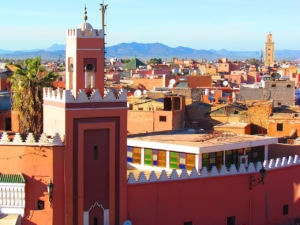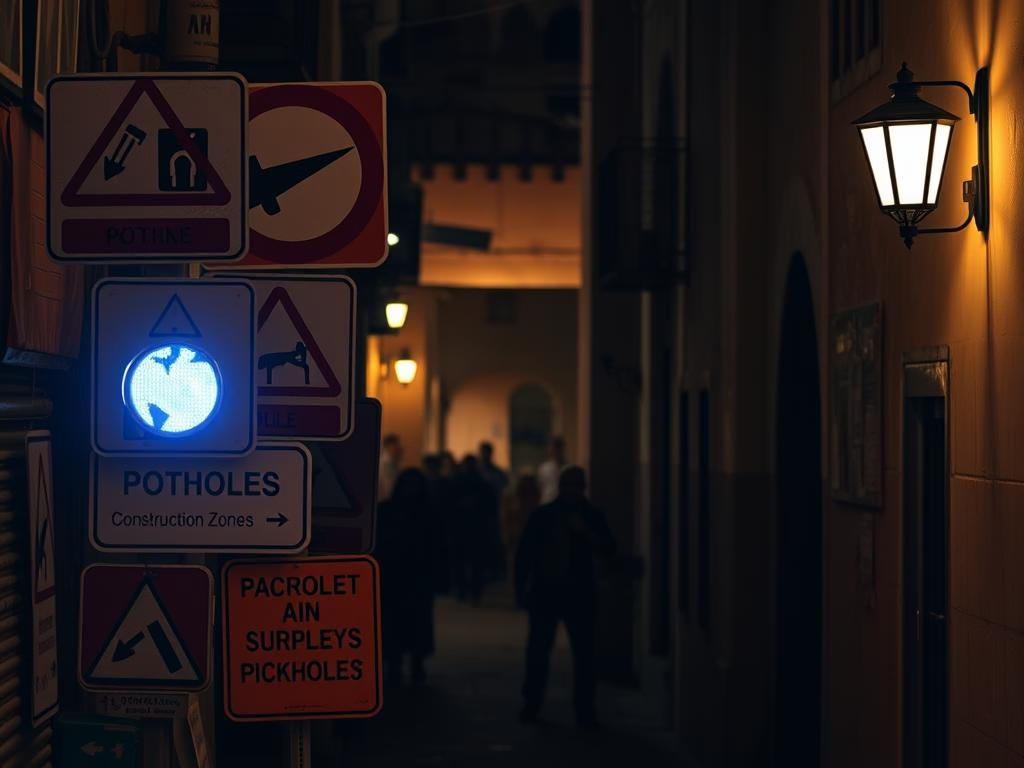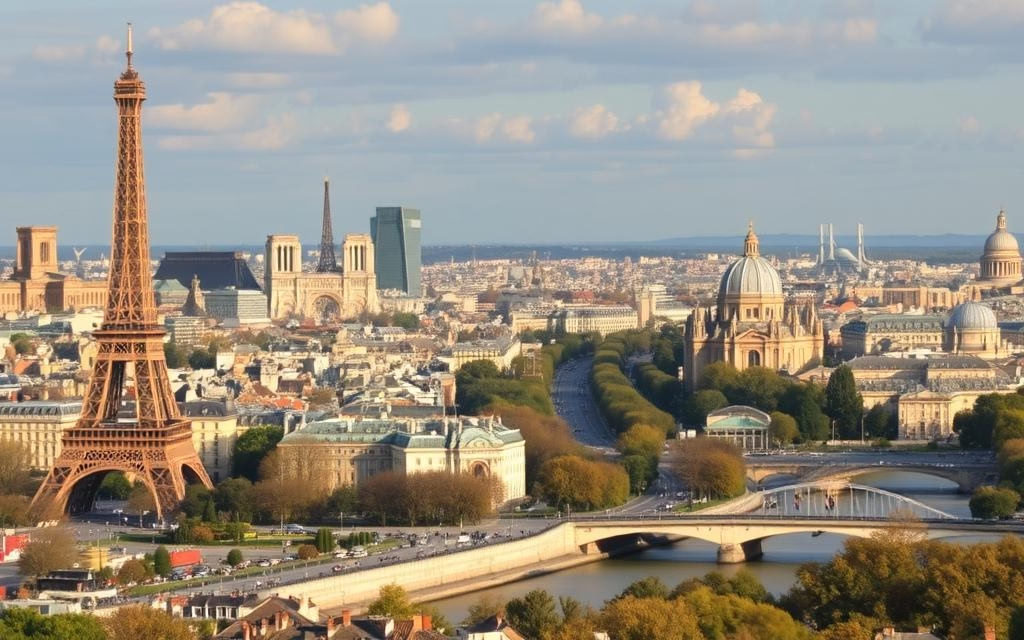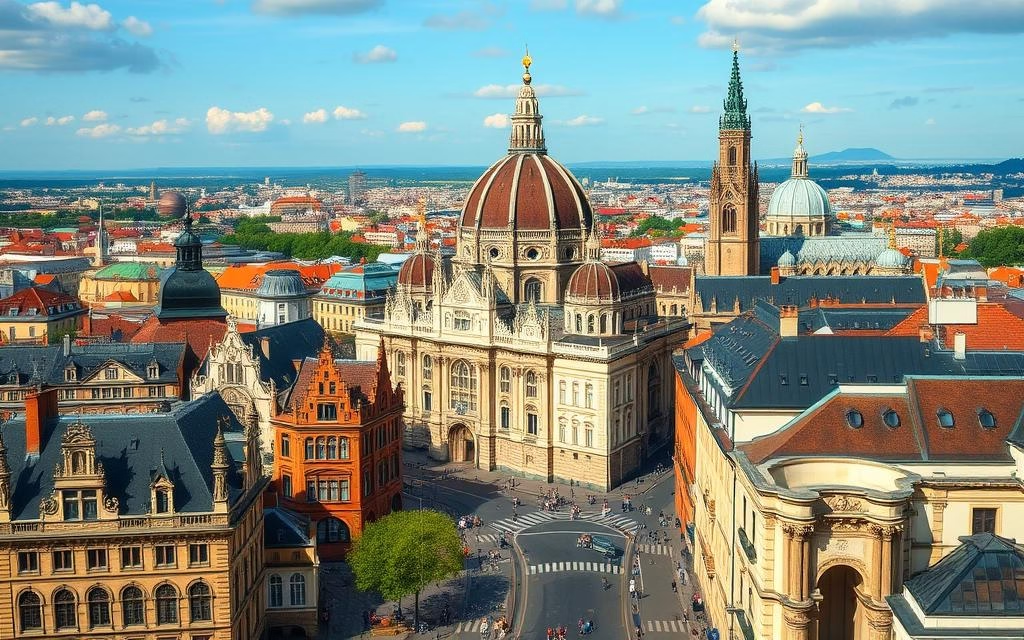Vital Morocco Travel Warning: Stay Safe on Your Tripe are you planning a trip to Morocco and wondering if it’s safe? You’re not alone. Many travelers are drawn to Morocco’s rich culture, stunning landscapes, and vibrant cities. But, it’s natural to have safety concerns.
Morocco is generally safe for tourists who are aware of their surroundings and follow local laws. The U.S. Department of State advises travelers to exercise increased caution due to potential risks. By being informed, you can have a safe and enjoyable trip.
The Moroccan government has taken steps to ensure tourist safety. But, it’s still important to be cautious. Staying informed about local conditions can help you navigate any challenges.
Key Takeaways
- Morocco is generally safe for tourists who are aware of their surroundings.
- The U.S. Department of State advises exercising increased caution.
- Following local laws and staying informed can help ensure a safe trip.
- The Moroccan government has taken steps to ensure tourist safety.
- Being cautious and prepared is key to a successful trip.
Understanding the Current Safety Situation in Morocco
Traveling to Morocco can be exciting if you know the safety situation. Morocco is serious about keeping tourists safe. This makes it easier for visitors to enjoy their trip.
Overview of Safety Conditions
Morocco has made sure tourists are safe, mainly in popular spots. The government has boosted security. But, it’s still important to know what’s happening locally.
Some things to keep in mind include:
- Petty theft and scams in crowded areas
- Traffic and road safety concerns
- Respecting local customs and laws
Recent Travel Advisories
Travel advisories from governments are very important. For example, the U.S. Department of State updates safety info for Morocco. Keeping up with these advisories helps travelers make smart choices.
“Travelers should stay informed about local conditions through government advisories and register with their government’s travel advisory program to receive important safety and security updates.”
Local Law Enforcement Presence
Law enforcement in Morocco is strong, mainly in tourist spots. The government has put more police and security around to keep visitors safe. This effort helps make Morocco a safer place for tourists.
Important things about local law enforcement include:
- Visible police presence in tourist areas
- Regular security patrols
- Collaboration with international law enforcement agencies
Common Travel Warnings for Tourists
Traveling to Morocco is exciting, but knowing the common travel warnings is key. Understanding local safety concerns will make your trip smoother. This knowledge will help you explore Morocco confidently.
Petty Crime Rates in Urban Areas
In cities like Marrakech and Fez, petty crime is a worry. Pickpocketing and scams are common in crowded spots and tourist areas. Always watch your belongings and keep your luggage close.
Carry less cash and use trusted taxi services or apps. A traveler advised, “Being aware of your surroundings is key to staying safe in Morocco’s busy cities.”

Transportation Safety Tips
Morocco has many transport options, like buses, trains, and taxis. Always use licensed taxis and agree on the fare first. Also, be careful when crossing streets, as traffic rules are not always followed.
- Use reputable taxi services or ride-sharing apps.
- Agree on the fare before you start your journey.
- Be cautious when crossing streets.
Cultural Sensitivity and Laws
Morocco is conservative with strict laws and customs. Dressing modestly is essential in mosques or rural areas. Also, respect local traditions and laws, like not taking pictures of government buildings or military personnel.
“Understanding and respecting local customs is not only a sign of respect but also a way to avoid any potential misunderstandings or legal issues.”
By being informed and respectful, you can have a safe and enjoyable trip to Morocco.
Health and Safety Precautions
Before you head to Morocco, knowing about health and safety is key. Being ready will make your trip better.
Vaccinations and Health Care Facilities
Check with your doctor about needed vaccinations for Morocco. You’ll need to be current on routine shots. Your doctor might suggest more based on your trip and health.
Key Vaccinations to Consider:
- Hepatitis A
- Hepatitis B
- Typhoid
- Rabies
Morocco has public and private hospitals. Big cities have good hospitals, but rural areas might not. Get travel insurance that covers medical flights.
Food Safety Guidelines
To avoid getting sick, follow these tips:
- Drink bottled or filtered water.
- Avoid raw meat or veggies.
- Choose places locals like and are busy.
Watching out for food safety can really help you stay healthy.
Hydration and Sun Protection
Morocco’s weather can be tough, like in the desert. It’s important to drink lots of water:
- Drink water all day.
- Don’t drink too much alcohol, it dehydrates you.
Also, protect yourself from the sun:
| Sun Protection Measure | Description |
|---|---|
| Use Sunscreen | Apply a broad-spectrum sunscreen with a high SPF rating. |
| Wear Protective Clothing | Choose lightweight, loose-fitting clothing that covers your skin. |
| Wear a Hat and Sunglasses | A wide-brimmed hat and sunglasses can protect your face and eyes. |
By following these tips, you’ll have a safer and happier trip to Morocco. Always be ready for anything that comes up.
Natural Hazards and Environmental Factors
Traveling to Morocco means knowing about natural dangers like earthquakes and weather changes. The country’s varied landscapes, from mountains to deserts, pose different challenges. Being ready for these can make your trip safer.
Earthquake Awareness
Morocco is in a zone where earthquakes happen often. Knowing what to do during an earthquake is key. Drop to the ground, take cover, and hold onto something sturdy to avoid being knocked over.
Learn the evacuation plans and emergency exits in buildings and hotels. Hotels usually share these with guests.
Navigating Desert Conditions
Exploring Morocco’s deserts requires knowing how to handle the harsh climate. Always carry enough water, sun protection, and a map or GPS. It’s best to go with a guide who knows the area well.
| Desert Safety Tips | Description |
|---|---|
| Hydration | Drink plenty of water to stay hydrated |
| Sun Protection | Use sunscreen, a hat, and sunglasses |
| Navigation | Carry a map, compass, or GPS device |
Seasonal Weather Considerations
Morocco’s weather changes a lot, from hot summers to cool winters. Knowing this helps you pack right. Check the weather forecast before you go to be ready for what you’ll face.
Being aware of natural hazards and weather can help you stay safe in Morocco. Always stay informed, plan ahead, and be ready for surprises.
Understanding Local Customs and Regulations
Traveling to Morocco means knowing the local customs and rules. Morocco is a conservative country. Respecting local norms is key to a great trip.

Respecting Dress Codes
Morocco has a conservative dress code. Visitors should dress modestly, mainly in mosques or rural areas. Covering your shoulders and knees shows respect for the culture.
- Wear loose-fitting clothes that cover your body.
- Avoid revealing clothes, more so in rural areas.
- Bring a scarf to cover your shoulders or head when needed.
Local Laws on Photography
Know the local laws on photography before snapping pictures. Some areas or subjects may be restricted. It’s important to know these rules.
- Always ask for permission before taking pictures of locals.
- Be careful around government buildings or military areas.
- Respect places where photography is not allowed.
Public Behavior Etiquette
Moroccans value politeness and courtesy. When meeting locals, be respectful and courteous. Saying “hello” or “salam” can make a big difference.
- Use your right hand when giving or receiving something.
- Avoid public displays of affection.
- Be patient and respectful when talking to locals.
Understanding and respecting local customs and rules makes your trip to Morocco better. Being a considerate traveler improves your experience and helps in cultural exchange.
Essential Emergency Contacts
When you travel to Morocco, knowing the emergency contacts is key. Having the right numbers can be a lifesaver in an emergency.
Local Authorities and Embassies
For emergencies, call local authorities or your embassy. Morocco has tourist police in big cities like Marrakech and Rabat. Registering with your embassy can keep you updated on safety.
Embassy Contact Information: Save your embassy’s phone numbers and emails. For Americans, the U.S. Embassy in Rabat is a great resource.
Health Services and Hospitals
Morocco has many healthcare options, from clinics to hospitals. Knowing the nearest hospital is crucial in a medical emergency.
Private Hospitals: Casablanca and Marrakech have private hospitals with good facilities and English-speaking staff. They’re a good choice for tourists.
Tourist Assistance Hotlines
Tourist hotlines offer quick help in emergencies or problems. They have staff who speak many languages and can guide you.
- Tourist Police: Call 19 for tourist emergencies.
- General Emergency: Dial 15 or 112 for all emergencies.
Being ready with these emergency contacts can make your trip safer. Stay informed, stay safe, and enjoy Morocco.
Transportation Safety in Morocco
Planning your trip to Morocco means knowing about transportation safety. Morocco has many ways to get around, like buses, trains, taxis, and cars for rent. Each has its own safety tips.
Public Transportation Risks
Public buses and trains in Morocco can be crowded. This might make you more likely to lose something. Always watch your stuff, and don’t show off your valuables. Stay alert and keep your belongings close.
Travel advisories say using well-known bus and train services can be safer. For example, the ONCF train service is safe and reliable for city-to-city travel.
Car Rental Tips
Renting a car gives you freedom on your trip. Choose a trusted company and make sure the car is in good shape. Check the car’s insurance and understand the rental agreement.
Driving in Morocco can be tough because of narrow streets and busy traffic in places like Marrakech. Get ready for aggressive drivers. If you’re not comfortable, think about hiring a driver.
Ride-Sharing Options
Ride-sharing is getting popular in Morocco, mainly in big cities. When you use ride-sharing, pick a licensed service. Always check the driver’s rating and details before you go.
“Using reputable ride-sharing services can enhance your safety while traveling in Morocco.”
It’s smart to tell a friend or family member about your ride. This way, they know where you are and when you should arrive.
Tips for Safe Accommodations
Planning your trip to Morocco? Choosing the right place to stay is key to your safety. With some precautions, you can have a safe and fun trip.
Choosing Reputable Hotels
Finding a good hotel is the first step to a safe trip. Look for hotels with great reviews and a strong local presence. Travel experts say, “A good hotel can ensure your safety and comfort abroad.”
When picking a hotel, think about its location, security, and what others say. TripAdvisor is a great place to see what other travelers think.
Understanding Local Neighborhoods
Knowing the local areas is important. Some places are safer than others. Staying in busy, well-lit areas can help avoid petty crime.
Hotel Security Features to Look For
When you check into a hotel, look for certain security features. These include secure entry, in-room safes, and 24-hour front desk services. A seasoned traveler noted, “A hotel’s security can save your life in an emergency.”
- Secure entry systems, such as keycard access
- In-room safes for storing valuables
- 24-hour front desk services for assistance
- Well-lit parking areas and CCTV cameras
Being aware of these features can greatly improve your safety in Morocco. A safe place to stay is the base of a great trip.
Traveler Experiences and Shared Insights
Traveling to Morocco is better with the help of others’ experiences. Hearing from fellow travelers can give you insights not found in official advisories.
Personal Accounts of Safety Abroad
Many share their safety stories while abroad. They give tips on staying safe in new places. For example, keeping up with local news and social media is key to avoiding danger.
- Stay alert and keep your valuables safe.
- Respect local customs and laws to avoid trouble.
- Choose safe transportation to reduce risks.
Social Media and Travel Forums
Social media and travel forums are key for sharing and finding info. Websites and online groups offer real experiences and safety tips for Morocco.
Some popular platforms include:
- Travel blogs and websites.
- Facebook groups for travelers.
- Reddit forums for travel stories.
Connecting with Other Travelers
Talking to other travelers is very helpful. You can learn a lot and even find travel buddies. They can also suggest the best places to visit.
Here are some ways to connect:
- Join travel groups on social media.
- Go to travel events and meetups.
- Post on online forums about your destination.
Using these resources and talking to other travelers can make your trip to Morocco better. You’ll also stay updated on any travel warnings or alerts.
Resources for Staying Informed and Prepared
Planning a trip to Morocco? It’s key to stay informed for a safe and fun trip. The right resources can keep you updated on local conditions and help you make smart choices.
Staying Safe with Technology
Use websites and apps like the official Morocco tourism site and travel safety apps. They offer important info on safety advisories, travel tips, and local conditions. These tools are great for exploring new places.
Local Insights
Keep up with local news to know about current events and safety issues. This info can help you change your travel plans if needed.
Travel Communities
Join travel advisory groups and forums to connect with other travelers. Sharing tips and experiences can make your trip better and safer.
By using these resources, you can have a well-prepared and safe trip to Morocco. You’ll get the latest on safety, travel tips, and advisories.



